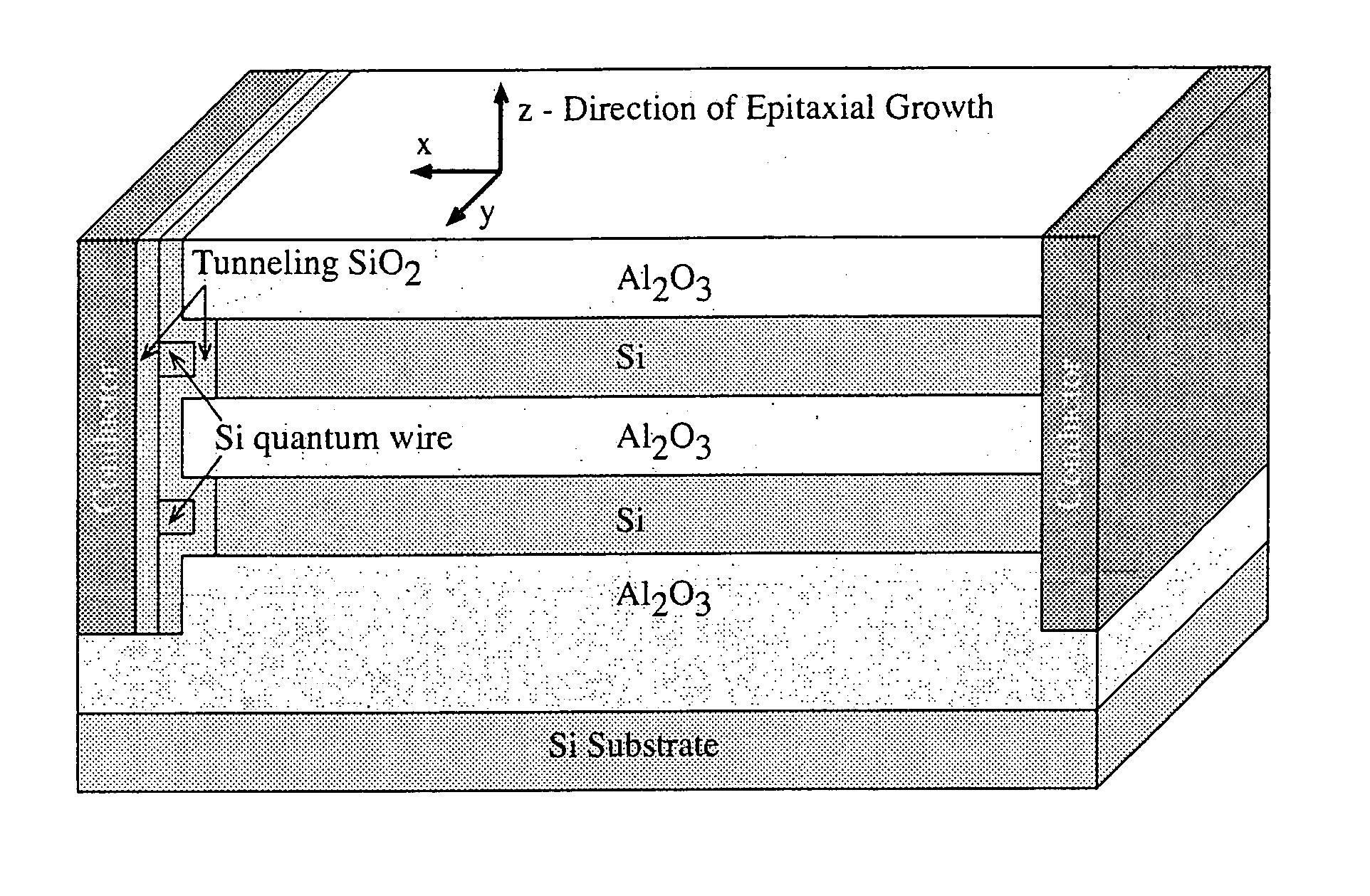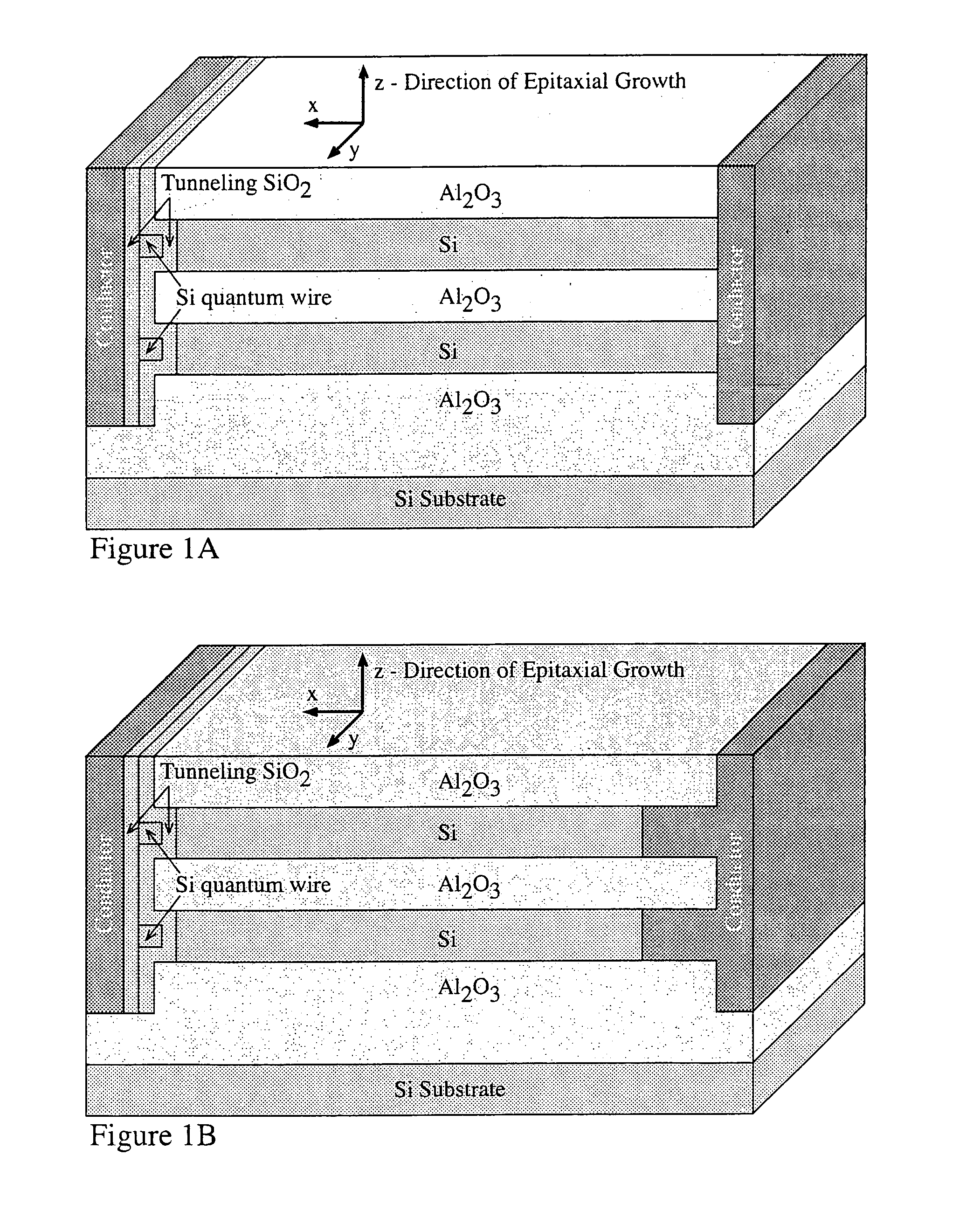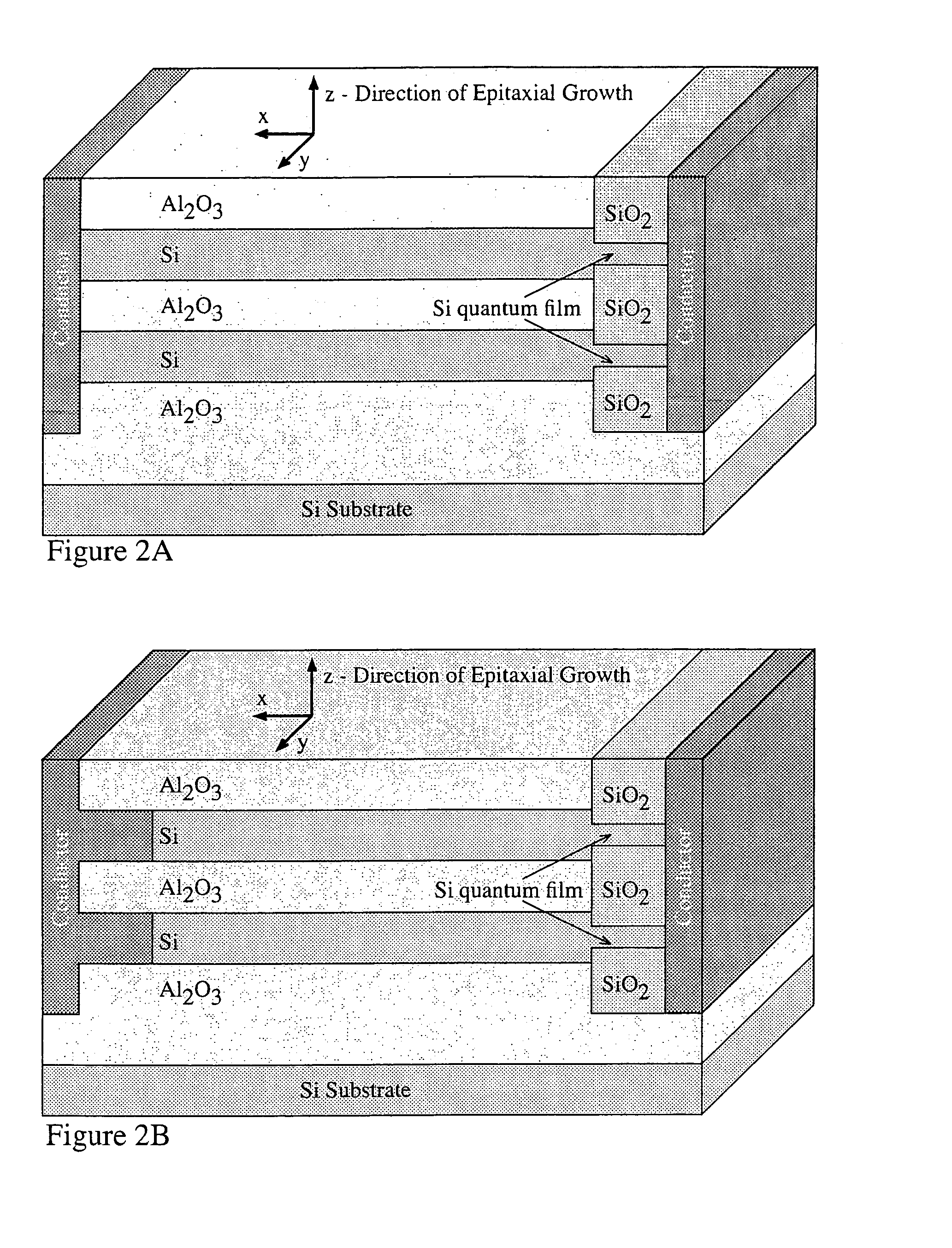Wavelength selective photonics device
a selective photonics and wavelength technology, applied in the direction of superconductor devices, radiation controlled devices, semiconductor lasers, etc., can solve the problems of increasing the number of wavelengths, unable to guarantee the desirable filtering of all carriers in all, and becoming impractical
- Summary
- Abstract
- Description
- Claims
- Application Information
AI Technical Summary
Benefits of technology
Problems solved by technology
Method used
Image
Examples
Embodiment Construction
[0047]FIG. 1A and FIG. 1B, show two exemplary implementations of the lateral contacts for light emission for interband or intersubband transitions. The implementations include on the left hand side of the stack a novel Quantum Wire Injector (QWI) architecture that is especially useful for light emission through intersubband transitions, both n-type and p-type. The two implementations differ only in the geometry of the “Extractor” contact located on the right hand side of the stack. The geometry of the Extractor contact does not alter the physics or the operation of the device. In these two figures, the conductors used for the QWI and for the extractor are not defined. These conductors can be metals, highly doped semiconductors, or conductive metal-oxides, for example. Band diagrams will illustrate the impact of choosing different conductors.
[0048]The QWI as shown in FIG. 1A and FIG. 1B on the left hand side of the structures, is composed of a Si quantum wire encapsulated in an insul...
PUM
 Login to View More
Login to View More Abstract
Description
Claims
Application Information
 Login to View More
Login to View More - R&D
- Intellectual Property
- Life Sciences
- Materials
- Tech Scout
- Unparalleled Data Quality
- Higher Quality Content
- 60% Fewer Hallucinations
Browse by: Latest US Patents, China's latest patents, Technical Efficacy Thesaurus, Application Domain, Technology Topic, Popular Technical Reports.
© 2025 PatSnap. All rights reserved.Legal|Privacy policy|Modern Slavery Act Transparency Statement|Sitemap|About US| Contact US: help@patsnap.com



